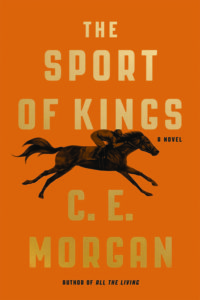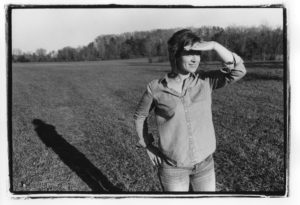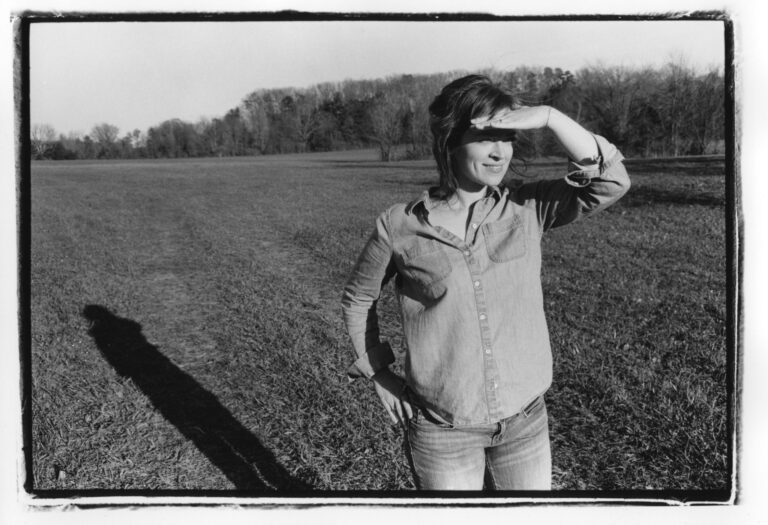Alumna C. E. Morg an gathered wide praise for her first novel, All the Living, published by Farrar, Strauss and Giroux (FSG) in 2009. Last year, Morgan built on that success with the publication of The Sport of Kings (FSG), which won the 2016 Windham-Campbell prize for fiction. Previous winners of the Windham-Campbell Prize include Teju Cole (fiction), John Jeremiah Sullivan (nonfiction), and Naomi Wallace (drama).
an gathered wide praise for her first novel, All the Living, published by Farrar, Strauss and Giroux (FSG) in 2009. Last year, Morgan built on that success with the publication of The Sport of Kings (FSG), which won the 2016 Windham-Campbell prize for fiction. Previous winners of the Windham-Campbell Prize include Teju Cole (fiction), John Jeremiah Sullivan (nonfiction), and Naomi Wallace (drama).
Reviews of the novel praised its powerful narrative and language. Kathryn Schulz, in The New Yorker, said The Sport of Kings “is a novel about racing and race” and “the way that African-Americans have been forced off the track, literally and figuratively to the psychological, political, and material advantage of whites.” A review in The New York Times called it “ravishing and ambitious … a mud-flecked epic, replete with fertile symbolism, that hurtles through generations of Kentucky history.”
You had great success and wide acclaim with All the Living. Now, The Sport of Kings seems poised for similar if not greater success. Did you expect lightning to strike twice?
Because of the length, breadth, and political nature of this book, FSG expected The Sport of Kings to reach a wider audience, and it has. I’m grateful for that, but I’m most grateful to be with a publishing house that always takes the long view, that values art over marketability, and the artist over quick production.
Please tell us about your reaction to all the attention your new book is getting.
I think of that kind of attention as a potential poison, both personally and spiritually, so I don’t read my reviews or run in literary circles. Remaining true to your art is an immense psychic task, one only made harder by paying attention to critical opinions of your work. So, I live a very quiet and private life with my husband, trying to experience each day deeply. A vital part of spiritual practice is to remember daily what matters and what doesn’t. Though outside opinion can and will elicit an emotional response, it doesn’t actually matter in any fundamental way. You do your work for years when it garners no attention, and you continue to do it once it does. No difference.
How do you decide what stories to write and what characters to portray?
In my experience, there is very little choice involved. It’s like falling in love; it happens to you. The choices are located elsewhere: are you willing to work hard; are you willing to sit with suffering; can you discover the endurance required; are you willing to dive deeply enough? Art, as opposed to making a quick buck from the page, is never easy and requires a kind of rigor that can only be the result of recommitting daily to the task.
For such a young writer, how have you managed to develop such a range of pathos and depth in your books’ characters?
I’m forty, so I don’t think of myself as young. I believe that if you’ve survived your childhood and lived to be twenty, then you’ve had adequate time—assuming your eyes are wide open—to take in the depth of life. But you must be awake and alert, and our culture encourages numbness through myriad distractions: easy religion; incessant entertainment; endless choice and high-speed everything. Ours is a culture thick with intoxicants. You have to be a warrior for your own spiritual sobriety.
When you aren’t writing, what interests occupy your attention?
My marriage, my friendships, my spiritual life, remaining politically educated, being with my dogs, taking care of my home, quilting.
Naturally, Berea College is proud of all of its graduates, but some, such as you, garner a degree of success that attracts a higher level of the public’s attention. I get the impression that you’re someone who values her privacy, so how do you deal with all the acclaim your work brings?
Well, again, you don’t have to court it or allow it to occupy a privileged spot in your inner life. It’s important to remember that all vocations, as opposed to jobs—whether conducted in the public or private spheres—are about serving the human family, rather than serving the self. That’s a fairly good inoculant against foolishness.
The Windham-Campbell Prize is a high honor. That prize (cash component notwithstanding) puts you in a select league of authors and elevates the stature of your work. What was your reaction when you heard you were a winner?
I wasn’t familiar with the prize. When I learned what it was, my response was immense relief and joy. The life of an artist, unless the artist comes from means (and it’s worth noting that many artists do), is one of radical instability; it can mean poverty, no health care, homelessness, a lack of decent food. If you feel you were born to do a certain kind of work, and then you pursue your vocation at any cost, the cost can be very high. A cash prize like the Windham-Campbell is life altering.
Anything else to share?
Berea was and is tremendously important to me. It was a gift in my life—the education, the presence of the faculty, the opportunities to go abroad, the community with other students who came from similar circumstances. Berea College truly stands for something, and I am profoundly grateful for that.
An earlier interview with Morgan that appeared in the Spring 2010 issue of the Berea College Magazine can be found in the archive at www.berea.edu/magazine/issue-archives.



[…] the start of the pandemic, I wrote a quote from my Berea College classmate, the writer CE Morgan, in my pocket book: “You do your work for years when it garners no attention, and you continue to […]